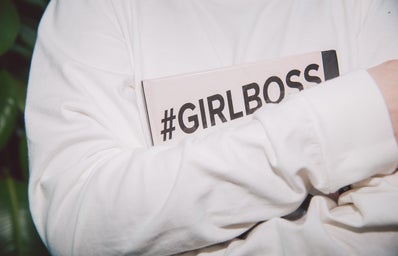In recent years, television and film have seen an influx of female-led narratives with strong protagonists and more female characters incorporated into the plot. While representation in the media is incredibly important and having more female writers sharing their stories is a step in the right direction, it is important to consider the effects that Hollywood edits have on these stories. A concept that generally assists the audience in dating a show is female empowerment and how prominent it is within the storyline. Coined as an effect of feminism, female empowerment in popular culture can take on many forms. However, many are quite harmful to feminist ideals and further develop gender hierarchy stereotypes.
Take a look at female detectives, heroes and spies in film and television. They are generally strong investigators using their intuition and seductive skills to pry information from people which supplements their weaker combat skills compared to their male counterparts. When seductive techniques are used, they are often filmed from the male gaze in order to resonate with an audience that may otherwise not relate to the “empowered” woman. Female action characters are seen as more collaborative with authorities compared to the stereotypical loner male leads and are either mothers or sexually available women torn between professional and personal demands.
Although the introduction of female characters into the center of action plots was once considered innovative and still carries an empowering notion, there is a requirement for these women to be extraordinary in their female representations. This makes viewers feel out of touch with them as they are required to “do it all” and maintain a flawless exterior. Popular culture ends up perpetuating the notion that empowerment is meant for powerful women, while the more timid and stereotypical feminine characters are left in the shadows of their own making.
Other times, a film or series will try to avoid falling into this stereotypical trope by detaching female leads from the conventions of feminine representations and trying to represent women with fewer stereotypes. This can be achieved successfully, but often directors have these female characters stray away from the normative ethics of care developed from feminist philosophy. Instead of appearing strong, they come off as cold. It is too often that we see a woman in power depicted as an unempathetic, egotistical monster driving audience sympathies towards the characters that must endure her wrath. These depictions contribute to a fear of women in leadership positions despite male counterparts exhibiting the same behaviour with fewer remarks or disdain from audiences.
By empowering women by removing feminine characteristics, women can only be seen as strong when they are associated with traditionally male traits. The “not like other girls” phenomenon is closely aligned with this. “Cool girls” in film and television have the same interests as guys and are portrayed as more genuine for having shed their femininity. It is a form of internalized misogyny that illustrates femininity as shackles to personal growth with the goal of forming friendships and relationships once they have enough confidence to shed the shackles. This maintains a gender hierarchy wherein men are superior and women are only able to become more valuable to society by losing feminine traits that “weaken” them.
This is not to say that all hope is lost for feminism and popular culture. There are many examples of female empowerment in film and television that support personal discovery and growth while making room for a diverse array of female characters to be empowered in their own way. There has been an emergence of messaging similar to Hailee Steinfeld’s 2017 Most Girls that celebrates being a woman while supporting women’s rights to connect as deeply as they wish with their femininity.
The goal of this piece is to shed some light on common tropes that distort the meaning of female empowerment in popular culture. They can contribute to further harm by perpetuating stereotypes about female characters and supporting the gender hierarchy through both subliminal and explicit messages. This piece is a call to action, asking that we all be more vigilant and demand more from the film and television series we enjoy. All forms of media must be consumed with a critical eye, and media that profits off of the promotion of apparent modern values and support of feminism are certainly no exception.
References
Dunn, C. P. and Burton, . Brian K. (2013, October 1). Ethics of Care. Encyclopedia Britannica. https://www.britannica.com/topic/ethics-of-care
King, N. (2008). GENERIC WOMANHOOD: Gendered Depictions in Cop Action Cinema. Gender and Society, 22(2), 238–260. http://www.jstor.org/stable/27821635


